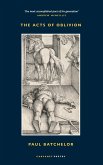* FINALIST FOR THE 2023 CALIBA GOLDEN POPPY BOOK AWARD FOR POETRY *
Drawing its title from the 1863 Federal Act that banished the Dakota people from their homelands, this remarkable debut collection reckons with the present-day repercussions of historical violence. Through an array of brief lyrics, visual forms, chronologies, and sequences, these virtuosic poems trace a path through the labyrinth of distances and absences haunting the American colonial experiment.
Removal Acts takes its speaker's fraught methods of accessing the past as both subject and material: family photos, the fragile artifacts of primary documents, and the digital abyss of web browsers and word processors. Alongside studies of two of her Dakota ancestors, Lynch has assembled an intimate record of recovery from bulimia, insisting that self-erasure cannot be separated from the erasures of genocide. In these rigorous, scrutinizing examinations of "removal" in its many forms-as physical displacement, archival absence, Whiteness, and vomit-Lynch has crafted a harrowing portrait of the entwined relationship between the personal and historical. The result is a powerful affirmation of resilience and resolute presence in the face of eradication.
Drawing its title from the 1863 Federal Act that banished the Dakota people from their homelands, this remarkable debut collection reckons with the present-day repercussions of historical violence. Through an array of brief lyrics, visual forms, chronologies, and sequences, these virtuosic poems trace a path through the labyrinth of distances and absences haunting the American colonial experiment.
Removal Acts takes its speaker's fraught methods of accessing the past as both subject and material: family photos, the fragile artifacts of primary documents, and the digital abyss of web browsers and word processors. Alongside studies of two of her Dakota ancestors, Lynch has assembled an intimate record of recovery from bulimia, insisting that self-erasure cannot be separated from the erasures of genocide. In these rigorous, scrutinizing examinations of "removal" in its many forms-as physical displacement, archival absence, Whiteness, and vomit-Lynch has crafted a harrowing portrait of the entwined relationship between the personal and historical. The result is a powerful affirmation of resilience and resolute presence in the face of eradication.
Dieser Download kann aus rechtlichen Gründen nur mit Rechnungsadresse in D ausgeliefert werden.









